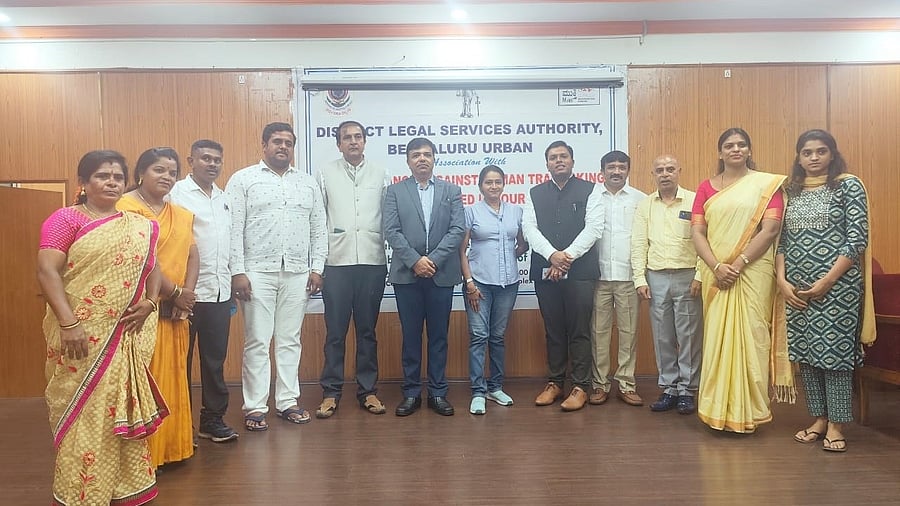
Activists participate in a workshop on human trafficking in Bengaluru on Saturday.
Credit: Special Arrangement
Activists dedicated to eliminating human trafficking and rehabilitating the victims into the social mainstream attribute various socio-political reasons and a concerted network of traffickers for its prevalence.
During a workshop on Human Trafficking Laws, Roles and Responsibilities of stakeholders of STF, DLSA on Saturday, activist Brinda Adige said that most victims of human trafficking hailed from weaker economic sections (70 per cent due to debt bondage), oppressed communities (87 per cent) and rural areas.
Even after raids on brothels and carrying out rescue operations, the activist spoke about the difficult eventualities for people from Dalit sections.
"When they are rehabilitated into the social mainstream, there are controversies the moment people get to know their background," she lamented. The workshop was jointly conducted by the District Legal Services Authority and Mukti Alliance Against Human Trafficking and Bonded Labour at the city civil court complex, Bengaluru.
While conceding that men, women, and transgenders have all been exploited by trafficking, Brinda pointed out that most of the victims are children and women. About 40 per cent of the overall victims are children and six children go missing once an hour as per the data by NCRB (National Crime Record Bureau), she added. Taking serious exception to the naming of the Immoral Trafficking Prevention Act, 1956, she questioned the need for the word immoral since trafficking itself is deemed illegal under Article 23 of the constitution.
Senior Civil Judge Ravi Kumar, one of the speakers, delved into the potential legal hurdles while dealing with cases of human trafficking. Citing an example where a customer at a brothel was released by the courts since it is not an offence to be a customer, he informed the police officers about the need to be alert about the age of the victims since the customer would be guilty of a crime if the victim is a minor.
Narrating a heart-rending incident where nine-year-old girls were made to consume growth hormones to be used for prostitution, he said POCSO cases have to be registered without fail in incidents featuring minors.
Justice Ajit J Gunjal, former judge of the High Court of Karnataka, inaugurated the event. He said it was important to rescue the victims and rehabilitate them.